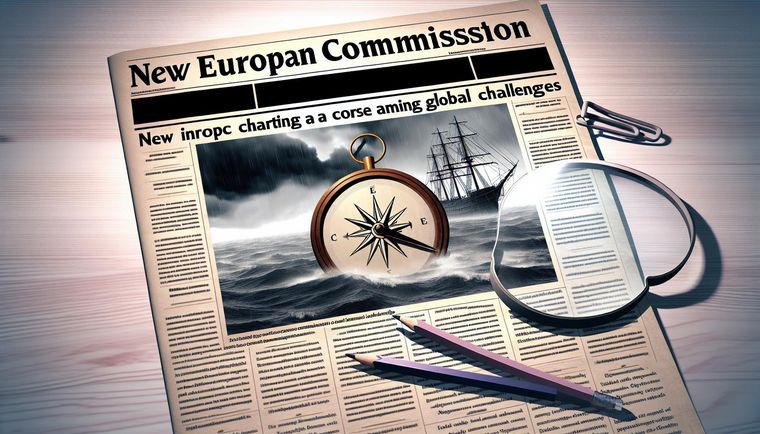New European Commission Leadership: Charting a Course Amid Global Challenges

After weeks of intense political negotiations, European Commission President Ursula von der Leyen unveiled her new team on September 17, marking a pivotal moment for the European Union (EU) as it navigates an era of global uncertainty. With pressing issues such as Russia's war in Ukraine, the potential resurgence of Donald Trump in American politics, and increasing competition from China, the formation of this new commission holds great significance.
"It’s about strengthening our tech sovereignty, our security, and our democracy," von der Leyen emphasized during her announcement at the European Parliament in Strasbourg. In her strategy to tackle these multifaceted challenges, she appointed French candidate Stéphane Séjourné to a key role as executive vice president overseeing industrial strategy. Additionally, she named a new commissioner for defense, a crucial position aimed at bolstering Europe’s military capabilities.
The climate landscape also saw significant appointments, with Spain's Teresa Ribera, a prominent socialist climate advocate, taking the helm as executive vice president responsible for the EU's economic transition towards carbon neutrality. This highlights the commission's commitment to addressing climate challenges alongside its security agenda.
Among other noteworthy appointments, former Lithuanian Prime Minister Andrius Kubilius was given the defense brief, aligning with the bloc's push for a robust response to Russian aggression. Meanwhile, Estonia's ex-premier Kaja Kallas was designated as the EU's foreign policy chief, further underscoring the importance of hawkish leadership from Eastern Europe at this juncture.
Von der Leyen's selection process was not without difficulties, as she navigated the varying demands of the 26 member states while attempting to maintain political balance. The commission ended up with 40 women, despite her push for gender parity, indicating ongoing challenges in achieving equitable representation within EU governance.
A contentious selection was Italy’s Raffaele Fitto, who received a key role overseeing cohesion policies, a decision that drew criticism from centrist and leftist factions due to his association with the far-right Fratelli d'Italia party. This selection mirrors the shifts in political power reflected in the results of the June EU Parliament elections, where far-right parties gained ground.
The EU’s environmental agenda seems to have diminished following the elections, yet Ribera’s role emphasizes the bloc's continued commitment to climate action, albeit with scrutiny concerning how environmental policies are distributed among commissioners. Dutch politician Wopke Hoekstra will also oversee aspects of climate policy, which is essential for the EU's goal of achieving carbon neutrality.
Amid a mixed bag of appointments is Finland's Henna Virkkunen, who assumes a critical position focused on tech and security, while Croatia's Dubravka Suica will oversee the Mediterranean, showing a diversity of concerns across the region.
However, the newly proposed commissioners must win broad approval from the European Parliament, where hearings are scheduled in the coming weeks. This presents an opportunity for legislators to exert their influence, potentially leading to the rejection of some candidates. A notable figure under scrutiny is Hungary's Oliver Varhelyi, an ally of Prime Minister Viktor Orban, who has seen his role shrink as he transitions to overseeing health and animal welfare.
The expectation is to have a fully operational commission by November 1, although many diplomats suggest a more realistic start date may be set for December 1. As the EU prepares for this new chapter, the leadership's ability to effectively address both security and climate challenges will be closely monitored by member states and citizens alike.
Related Sources:
